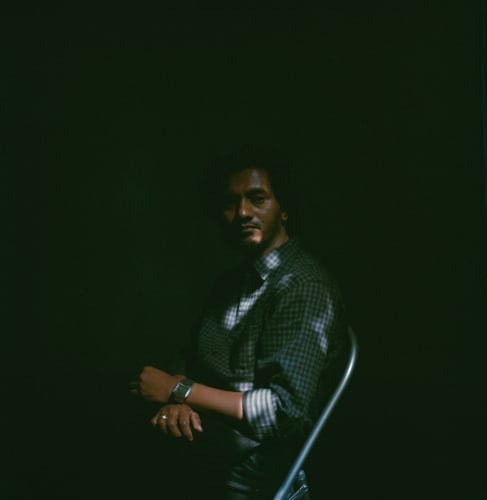Born in 1987 in Bombay, India
Now lives and works in Bombay and Amsterdam
To Amol K. Patil, a conceptual and performance artist based in Bombay, his artwork is an ongoing excavation and investigation to recapture the pulsating, vibrating movements, and sound of the ‘chawl’ architecture and habitus. Patil grew up in an area of ‘chawls’, a built form specific to Bombay/Mumbai, 5-storey social housing for mill and factory workers that were built in the early 1900s, with many tenements fit close together, long verandahs connecting every door, with children running on floorboards above, the swirls of gossiping voices from dimly lit tables under which men gather to play carrom, the woman with a walking stick, the sound of termites eating into wood, wedding festivities, and rhythmically creaking beds.
Patil was born in Bombay. After his education in visual arts, he initiated and was part of many practices with collective formations. It is in this dynamic ambience that he became interested in the crossover of performance art, kinetic installation, and video installation. He was intellectually drawn to the shaping of social systems and taxonomies of memory. From his family archive, Patil stages live settings, such as where a tape runs a conversation between a machine, a siren, and a mosquito, where the sound of the machine and the siren are recordings made by his father, an inheritance from someone long gone. The mosquito is of his time. Such settings of imaginary conversations of energies engage and transform not just each other, but all that comes in contact with them.
After discovering his affinity for performance art, he grappled to understand his father’s work as a theater activist. He encountered objects in old cupboards in his home: an old Dictaphone tape recorder, a walkman, and cassettes filled with sounds and immigrant dialects that his father recorded for his typed, grassroots, avant-garde theater scripts about the dilemma of living as a migrant in the city, and which he performed within the industrial mill areas of Bombay. He found, as well, handwritten songs of his poet grandfather. The songs come from a protest tradition since the 17th century called ‘Powada’, much in use before and after national independence, still found today, which are not so much to sing, but a rap form spitting out furious words against the caste system, and the revolutionary words of Dr. B. R. Ambedkar, the Dalit thinker who gave India roads out of caste and towards social equality and, as the Chairman of the Drafting Committee of the Constitution of the Republic of India, inscribed equality, liberty, and justice for all its citizens.
In his recent work, Patil is expanding his research on the construct of urbanization and invisibility of the working class in emergent urban imaginaries. His project is to build counter-memory and contesting narratives that describe and disturb the relationship between humans and landscapes.
Amol K. Patil has shown at Kunstenfestivaldesarts, Brussels, Belgium (2023); TaxisPalais Kunsthalle Tirol, Innsbruck, Austria (2023); Project 88, Bombay, India (2023); Kochi-Muziris Biennale, Kochi, India (2022–2023); Documenta Fifteen, Kassel, Germany (2022); Yokohama Triennale, Yokohama, Japan (2020); Goethe- Institut / Max Mueller Bhavan, Bombay, India (2019); Goethe-Institut / Max Mueller Bhavan, New Delhi, India (2019); Tensta konsthall, Spånga, Sweden (2017); Centre Pompidou, Paris, France (2017); Pune Biennale: Habit-co-Habit, Pune, India (2017); New Galerie, Paris, France (2016); Dakar Biennale, Dakar, Senegal (2016); Japan Foundation, New Delhi, India (2015); Stedelijk Museum, Amsterdam, Netherlands (2015); International Artists Initiated, Glasgow, Scotland, U.K. (2014); Para Site, Hong Kong (2014); Kadist Art Foundation, Paris, France (2013).

